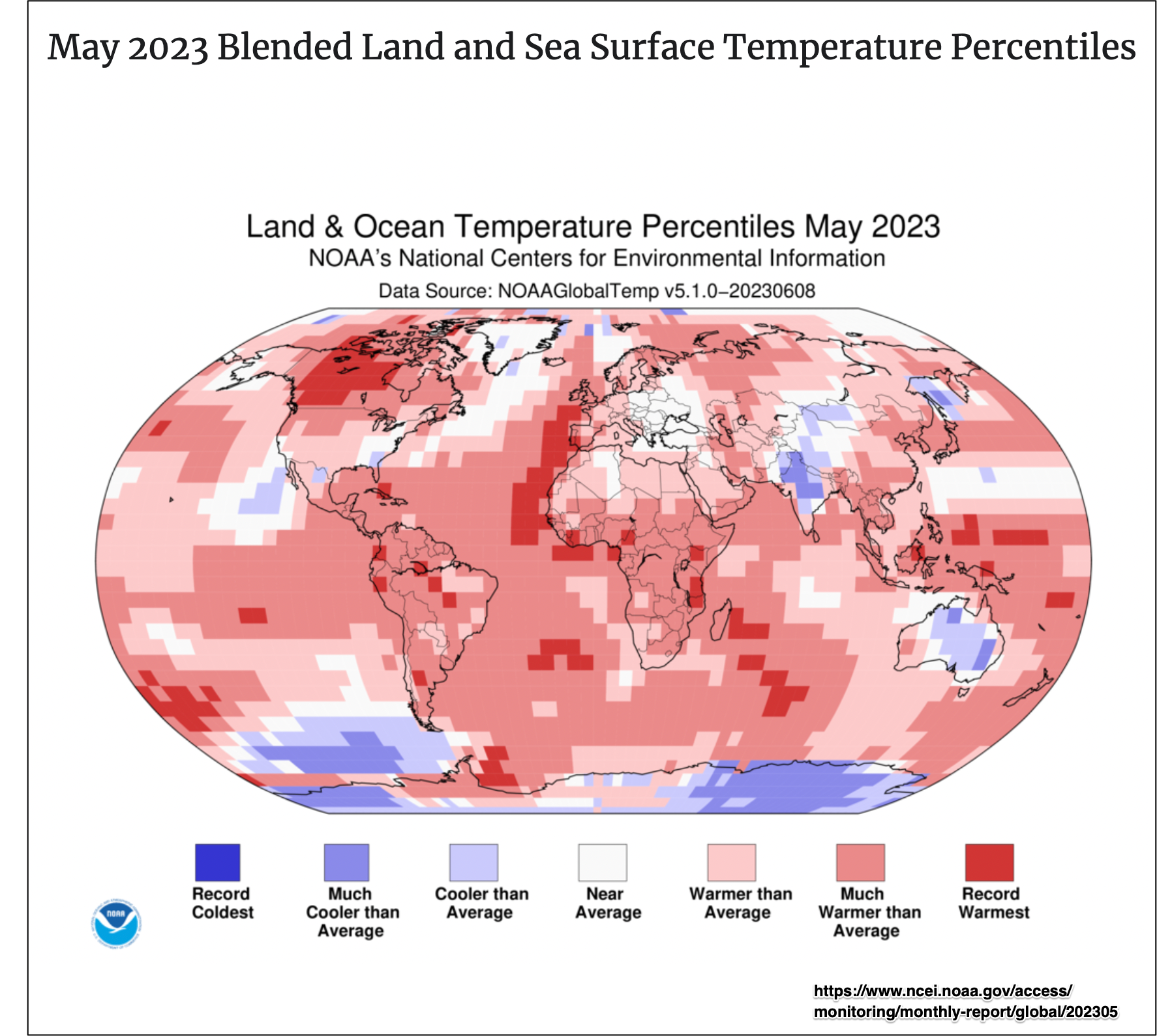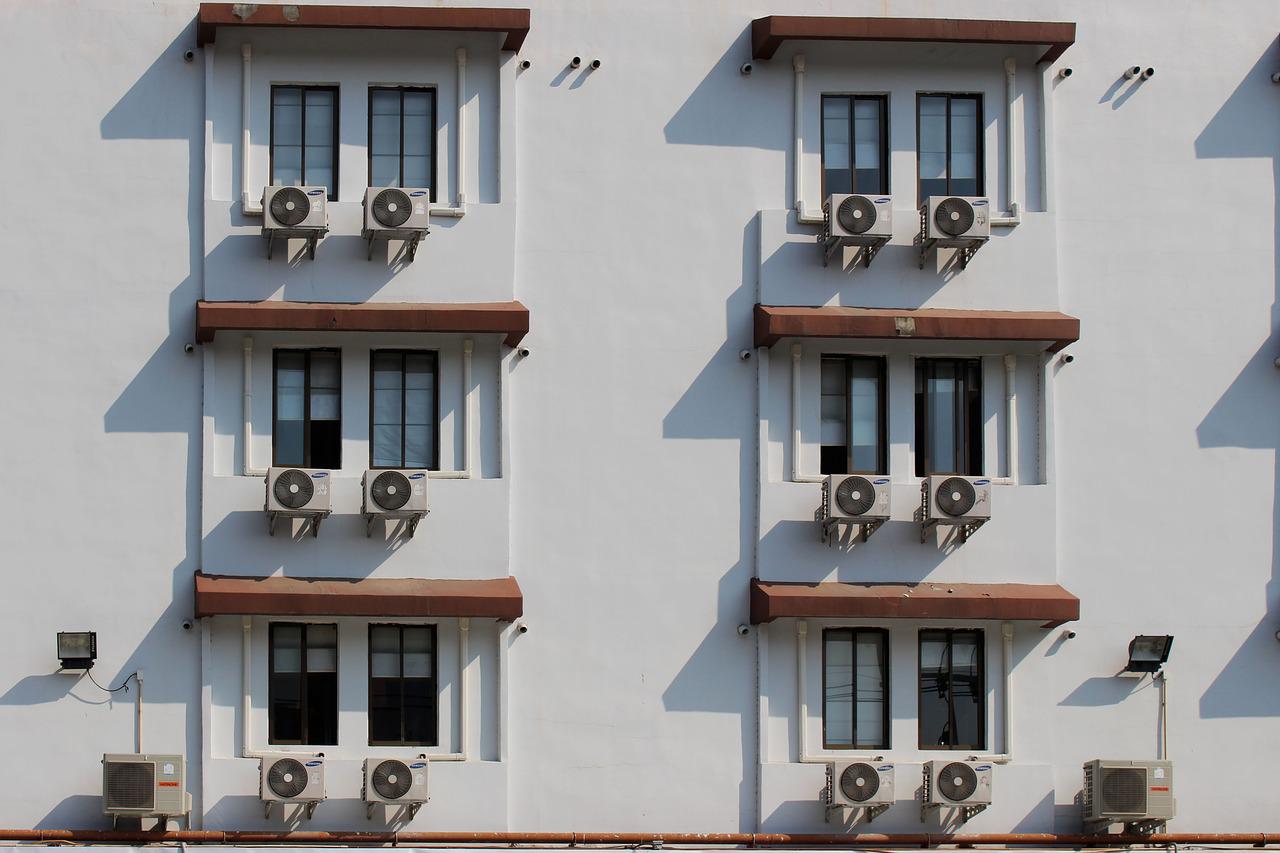The Wall Street Journal tells us that AC design has just taken a huge leap. Long a blight in the U.S., the window air conditioning unit has been a noisy, tough to install, inconvenient necessity. Now though, a U-shaped unit that is made by the Chinese manufacturer Midea, could revolutionize the experience. Described as energy efficient and quiet as a library, the new unit is already a top-rated best seller.
The new unit splits the traditional air conditioner in two with the noisy part outside the window:
Moving beyond the U.S., I wondered how the Midea unit would affect developing nations.
Air Conditioning Demand
Explaining its map, NOAA said that May temperatures in North and South America and New Zealand touched record breaking highs during May while the Netherlands was normal AND Italy was cooler. However, a recent paper warns us not to overemphasize the impact of temperature on AC. Also, it concludes that education, income, age, and location also play a significant role:

Our Bottom Line: The Rebound Effect
Two years ago, India said it wanted to expand AC production 8-fold by 2029. So, after seeing that the Midea U-unit is sold in India, I wondered about the rebound effect. Also called the Jevons Paradox, energy efficiency encourages more energy use rather than less. As William Stanley Jevons said about the steam engine, “It is wholly a confusion of ideas to suppose that the economical use of fuel is equivalent to a diminished consumption. The very contrary is truth.”
William Stanley Jevons (1835-1882):
 So where are we? Trying to achieve energy efficiency, we are creating unexpected externalities. Defined as the impact on third-party bystanders, externalities can ripple far beyond their origin. For air conditioning, their “spillover,” could be positive through the comfort, health, and productivity they create. But also, we might experience the Jevons Paradox.
So where are we? Trying to achieve energy efficiency, we are creating unexpected externalities. Defined as the impact on third-party bystanders, externalities can ripple far beyond their origin. For air conditioning, their “spillover,” could be positive through the comfort, health, and productivity they create. But also, we might experience the Jevons Paradox.
My sources and more: Today’s post was inspired by yesterday’s WSJ. From there, I returned to NOAA and found more detail about lower income economies in this Nature Communications.








Another example of climate spillover is the proliferation of electric muscle cars, which partially negates the advantages of the automotive electric transition. The only really economically rational way to minimize this and similar rebounds is to tax carbon at the point of extraction. In general, Pigovian taxes are the correct way to mitigate Jevon’s paradox.
Thanks, Rick. I always appreciate your comments.